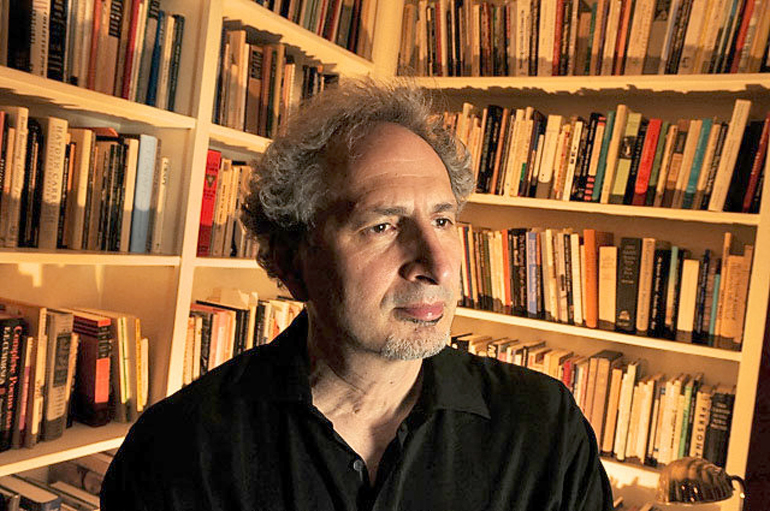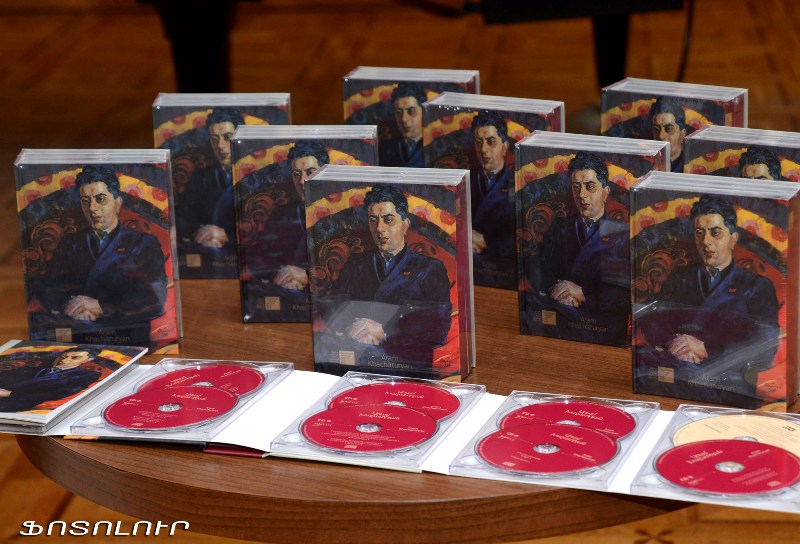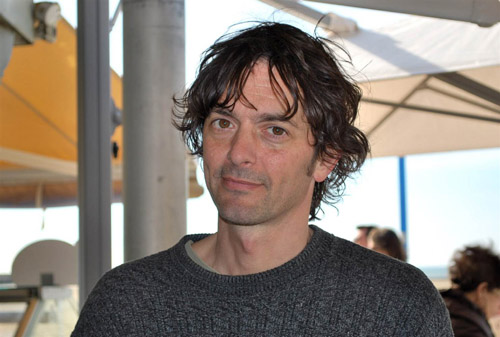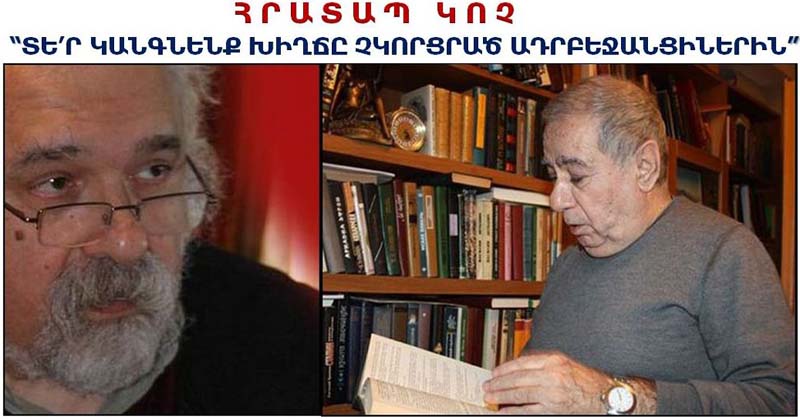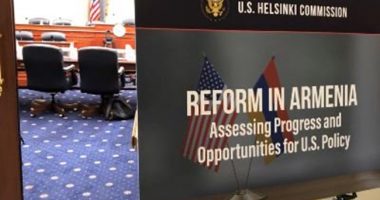By Taleen Babayan
Award-winning author and professor Peter Balakian will be teaching a course titled The Armenian Genocide and the Holocaust: Memory and Representation this fall at Columbia University.
Balakian, who has been appointed the Nikit and Eleanora Ordjanian Visiting Professor in the Department of Middle East, South Asian and African Studies of the university, is approaching the issue of genocide studies in a unique way, giving students the opportunity to gain insight to some of the broader dimensions of genocide and its aftermath.
“The lessons of the Armenian Genocide were not lost on the Nazis,” said Professor Balakian, who is the Donald M. and Constance H. Rebar Professor of the Humanities, Professor of English and Director of Creative Writing at Colgate University. “This history of Jews in Europe and the history of the Armenians of the Ottoman Empire offer striking parallels and this makes for some exciting comparative work.”
The course focuses on the aftermath of the Armenian Genocide, which resulted in the massacre of 1.5 million Armenians during the first world war under the Young Turks of the Ottoman Empire, and the Holocaust, which culminated in the persecution of 6 million Jews by the Nazi party during the second world war. Students will explore the impact of genocide on the self and the imagination’s representations through primary texts, which include literature, film, visual art, memoir and video testimony.
”Studying survivor experience, allows us to see what the long-term impact of genocide can be on the human self and the imagination,” said Balakian, who has been studying and writing about genocide for over four decades. ”How do survivors make meaning after catastrophic experience? How does the event live on in the traumatized self? How do literature and art allow us to see the resilience of human beings in the wake of crushing experience?”
The interdisciplinary nature of the course, which has been approved to satisfy Columbia University’s Global Core requirement, makes the class more accessible and appealing to students of all fields of study. The class is open to undergraduate and graduate students who will have the option to take on projects and assignments in relation to their specific majors.
“This course offers a kind of knowledge that allows students to see how societies can do awful things but it also allows students to see conversely the importance of democracy, tolerance and multi cultural society,” said Balakian. “It’s a course that will take students into the most pressing ethical and moral issues of life on the planet.”
Balakian, whose research on the Armenian Genocide evolved from his work as a poet and a literary scholar, laid the groundwork for writing about the transmission of trauma across generations in literary studies.
“I began to see in the mid 1970s that the literary landscape was changing and that the impact of historical trauma on the imagination was opening into a new area,” said Balakian, whose essays “Poetry Ancestors History, “Charents: The Rise and Fall of A Revolutionary Poet,” and ”Arshile Gorky and the Armenian Genocide,” all had significant impacts on opening up the field of genocide studies and literary studies in the public intellectual discourse in the United States and elsewhere.
A New York Times bestselling author, Balakian’s memoir Black Dog of Fate is the best-selling work of literary non-fiction about the Armenian Genocide. The author of 9 books, Balakian reads and lectures worldwide and has been the recipient of many literary prizes including the PEN/Albrand Prize for Memoir, the Raphael Lemkin Prize, a Guggenheim Fellowship and a National Endowment of the Arts Fellowship, as well as the recent Spendlove Prize for Social Justice.
The Armenian Genocide and the Holocaust: Memory and Representation, a seminary style course (G4326, Call #86035) will be taught on Thursdays from 2:10 – 4:00 pm and is open to auditors as well as matriculating students. This course has been approved to satisfy Columbia University’s Global Core Requirement. Registration is from August 26-30 and classes begin September 5. Tuition for auditors will be $2,500 and for Lifelong Learners (people over the age of 65) will be $800. Registration may be done online atwww.ce.columbia.edu/auditing or by calling (212) 854-9666.

